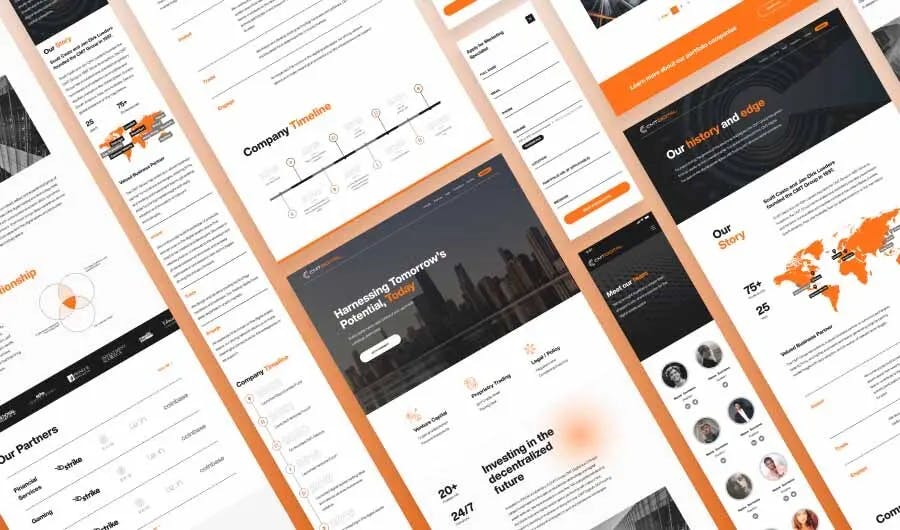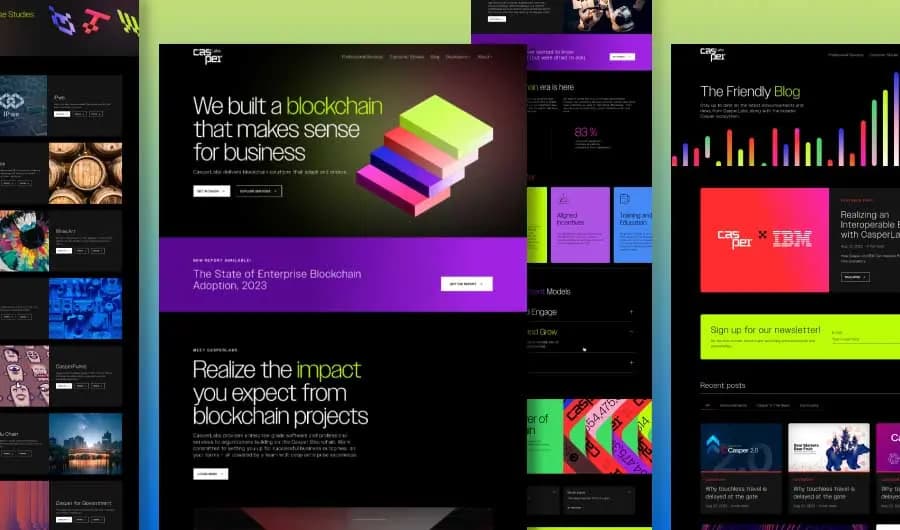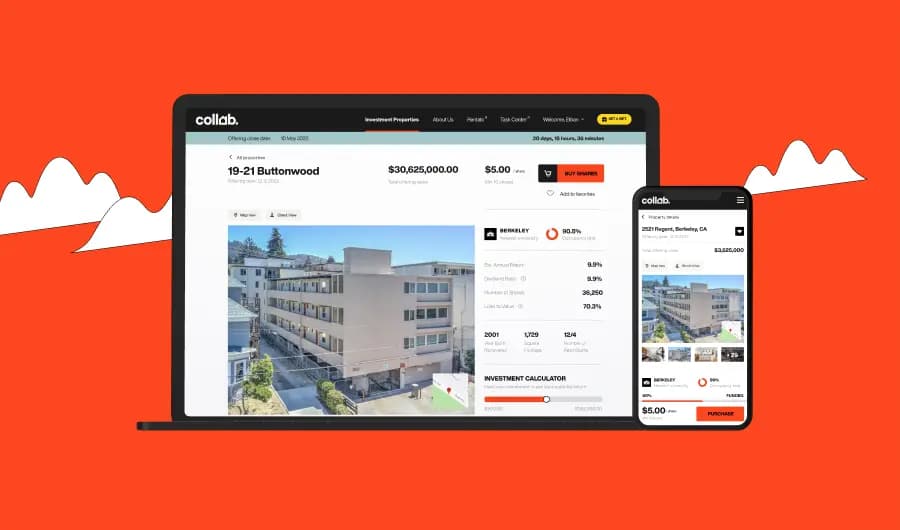
Platform
What is a Digital Platform?

Introduction
A digital platform is a technology infrastructure that enables the creation and delivery of digital products and services to customers. It serves as a foundation for developing, running, and managing applications, websites, and other digital offerings. In layman’s terms, you can think of a digital platform as a digital forum. It provides a space for an exchange of information, products, or services. They also serve as a platform for communicating a company’s brand, imagery, and value points.
While the concept may seem simple, digital platforms are often misunderstood. Terminology can be confusing - such as the difference between an “app” and a “platform” - as well as deciding on which type of platform you need to run your business, empower your staff, and serve your consumers. So let’s clear all that up. But first, how exactly do businesses benefit from digital platforms?
Platforms vs Apps
One common misunderstanding is the difference between a platform and an application, or app. A platform is a set of technologies or software that provides a foundation for developers to build applications on top of. It typically includes tools, libraries, frameworks, and APIs that enable developers to create a wide range of applications for different purposes. Platforms can be either hardware-based, like gaming consoles or mobile devices, or software-based, like operating systems or cloud computing services.
An app, on the other hand, is a standalone software application that runs on a specific platform, such as a mobile device, a computer, or a gaming console. Apps are designed to provide specific functionality or services, such as social networking, gaming, productivity, or entertainment.
A platform is a foundation that provides tools and services for developers to build various applications, while an app is a specific software application designed to run on a particular platform.
Benefits of Digital Platforms
At Scalio, we build digital platforms, so we know a thing or two about what makes them the most valuable digital asset a business can have. In fact, you’re now reading this blog on our own proprietary digital marketing platform. This takes us to our first benefit:
- Increased brand awareness: Platforms like ours are a great way for brands, new or well-established, to spread their message and build awareness. They also serve as a landing point for social media traffic, advertising, and other marketing purposes.
- Better customer targeting: Digital platforms can help businesses target their ideal customers with precision through data-driven insights and targeting capabilities. By understanding their customers' preferences, behaviors, and needs, businesses can offer personalized experiences that increase customer loyalty and drive sales.
- Reduced marketing costs: Digital platforms offer cost-effective marketing solutions such as search engine optimization, social media marketing, and email marketing. These channels can reach a wider audience than traditional marketing channels, such as print or TV, and can be more affordable.
- Increased agility: Digital platforms can help businesses respond quickly to changing market conditions, customer needs, and trends. This agility can help businesses stay competitive and profitable in a fast-paced digital economy.
- Improved operational efficiency: Digital platforms can help businesses streamline their operations and increase efficiency by automating tasks, reducing manual errors, and optimizing workflows. This can lead to cost savings and increased productivity.
- Increased revenue: Digital platforms can help businesses increase their revenue by expanding their reach to new customers and markets. By leveraging digital marketing and e-commerce capabilities, businesses can reach a global audience, increase sales, and generate more revenue.
These are only a few of the benefits of digital platforms, and they’re broad. To understand some of the most specific ways in which companies can benefit from them, we need to take a look at more specific types.
Types of Platforms
Digital platforms are not universally categorized, but they are commonly classified by their business value generation methods, industry, or technology. Despite their diversity, digital platforms always serve the purpose of connecting consumers with what they want. The following are some of the most prevalent types of digital platforms:
- Aggregation Platforms: These platforms collect data from various sources and display it in an easy-to-read manner.
- Website Platforms: Every company needs a digital presence, so a website platform is its most valuable digital asset.
- Mobilization Platforms: These platforms create value by mobilizing people to achieve business objectives.
- Social Platforms: Social platforms add business value by connecting companies with their audience and focusing on shared interests rather than transactions.
- Learning Platforms: Learning platforms are created to share and distribute knowledge.
Platforms are also commonly and logically categorized by industry and the services they provide, such as social media, cloud platforms, labor and freelancing platforms, communication platforms, and payment platforms. However, even this categorization is not universally adopted.
FinTech Platforms
Digital platforms are in a constant state of evolution, which is why there are different systems of categorization. This is particularly evident in the case of FinTech, where establishing an online presence is essential.
Platforms must also be multifunctional. While FinTech companies need a strong online presence, they must also accommodate payments, digital assets, and other unique features specific to each FinTech project.
At Scalio, we refer to these as "investment platforms" for FinTech companies, despite their unconventional classification. Our expertise in this area has shown that these consist of two key components: integrated digital marketing and investment-specific features.

Moreover, the regulatory landscape for fractional investments in the United States means that these types of platforms are much more than just a means of displaying a company's brand and marketing. They must adhere to stringent regulations while simultaneously fulfilling their intended purpose as marketing platforms. Therefore, creating and maintaining these platforms involves a delicate balance between compliance and functionality. At Scalio, we specialize in developing investment platforms that meet these complex requirements, enabling our clients to grow and scale their FinTech businesses with confidence.
Why do Businesses Prefer Platforms over Apps?
Platforms give significantly more business control than apps. Firstly, platforms are typically designed to be highly customizable, allowing businesses to tailor their applications to meet their specific needs. With a platform, businesses have access to a range of tools and APIs that enable them to customize their applications to integrate with other systems, add new features, and modify the user interface to reflect their brand. This level of customization can give businesses a greater degree of control over their applications, as they can fine-tune them to meet their exact requirements.
Secondly, platforms are designed to be scalable and can handle a large volume of traffic and users. This is important for businesses that need to accommodate growth and expect to serve a large user base. With a platform, businesses can easily scale their applications up or down as needed, without having to worry about infrastructure or capacity issues. This scalability can give businesses more control over their applications, as they can grow their user base and increase revenue without having to worry about technical limitations.
Security is also a common reason companies use platforms. They typically provide robust security features, such as data encryption, access controls, and authentication mechanisms. These features can give businesses peace of mind that their data and applications are secure and protected against cyber threats. With a platform, businesses can also manage their security settings more easily, giving them greater control over who can access their applications and data.
Platforms often come with built-in analytics tools that enable businesses to track user behavior, monitor application performance, and measure business metrics. This data can be used to make informed decisions about product development, marketing campaigns, and other business strategies. With a platform, businesses can have more control over their applications, as they can analyze user behavior and adjust their applications to meet the needs of their users more effectively.
Finally, platforms can offer businesses a range of monetization options, such as subscriptions, in-app purchases, and advertising. This gives businesses greater flexibility in how they generate revenue from their applications and can help them to maximize their profits. With a platform, businesses can have more control over their revenue streams, as they can experiment with different monetization models and adjust them based on user behavior and market conditions.
In summary, a platform can give businesses more control over their applications by providing customization options, scalability, security, analytics, and monetization opportunities. By leveraging these capabilities, businesses can build more robust and profitable applications, and tailor them to meet the needs of their users more effectively.
Conclusion
To sum up, a digital platform is a technology infrastructure that enables the creation and delivery of digital products and services to customers. Digital platforms are commonly classified by their business value generation methods, industry, or technology. There are different types of digital platforms, such as aggregation, website, mobilization, social, and learning platforms, to name a few. In the case of FinTech, investment platforms are multifunctional and include integrated digital marketing and investment-specific features.
Hopefully, you have a clear understanding of the difference between a platform and an application - a platform is the foundation on which apps are built, and they provide numerous benefits to businesses. Platforms give businesses greater control over their applications and can accommodate growth and a large user base while providing robust security features, and built-in analytics tools, among other benefits.






